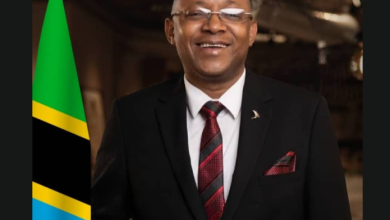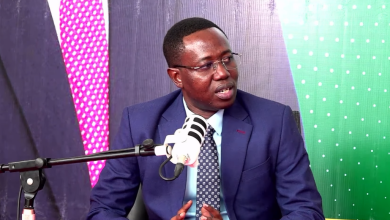Lukanga: Unlocking blue economy for women

IN the glittering halls of the United Nations Ocean Conference held in Nice, France, global leaders, diplomats, and experts gathered to debate the future of the world’s oceans.
Amidst the polished speeches and diplomatic jargon, one voice rose with the strength and clarity of lived experience, the voice of a Tanzanian woman, Editrudith Lukanga who has made it her life’s mission to fight for the rights of small-scale fishers, especially women.
Ms Lukanga, the Executive Director of the Environmental Management and Economic Development Organisation (EMEDO) based in Mwanza, stood before world leaders with a message that was impossible to ignore “Without women, there are no fish on the table.” Her presence at the UN Ocean Conference wasn’t just symbolic, it was transformative. In a room dominated by policymakers, Ms Lukanga spoke from lived experience, bringing real stories from Tanzanian fishing communities directly to the global stage.
She challenged international leaders to rethink ocean governance that often sidelines small-scale fishers, particularly women.
“Marine conservation cannot succeed if it displaces the very people who have sustainably managed ocean resources for generations,” she said.
Her speech was a powerful reminder that global policies mean little without grassroots inclusion. But Lukanga’s fight doesn’t begin or end at international summits, it’s deeply rooted at home in Tanzania’s fishing communities.
Ms Lukanga’s journey started when she founded EMEDO, an organization aimed at improving the livelihoods of small-scale fishers, with a strong focus on women. For years, she watched how women who process, trade, and handle most of the fish caught remained invisible in official policies, denied access to infrastructure, loans, and decision making.
ALSO READ: ‘UDSM Lindi campus to spur growth’
Through EMEDO, Lukanga implemented a project under the FAO-supported Small-Scale Fisheries (SSF) Guidelines that brought together women from 15 districts around Lake Victoria for training and consultations.
What she discovered was shocking but not surprising. Despite working with the same groups of women, fisheries officers and community development officers rarely communicated.
For example, the community development office would offer loans to women, but the women, lacking legal knowledge, might unknowingly buy undersized fish. When fisheries officers enforced regulations, the women lost their entire investment.
“This is not just a regulatory problem. It’s a system that punishes women for what they were never taught,” Ms Lukanga said.
To solve this, EMEDO started offering legal literacy training for women in fisheries helping them understand the laws governing fishing, avoid violations, and protect their livelihoods. These grassroots consultations soon led to something bigger, the birth of the Tanzania Women Fish workers Association (TAWFA) in 2019.
It is now a powerful national network that connects women across the fishing value chain from processors to traders giving them a unified voice.
“For the first time, women could come together, elect their leaders, and speak with one voice,” Ms Lukanga says.
TAWFA’s success is evident. They now have zonal executive committees, organize their own meetings, and even invite high-level government officials to listen to their concerns. Their leadership is changing the way fisheries are managed in Tanzania with women at the decision-making table.
Ms Lukanga didn’t stop at the national level, in 2017, she became one of the founding members of the African Women Fish Processors and Traders Network (AWFishNet), a continental platform that links women across Africa’s fisheries.
AWFishNet strengthens small and medium enterprises run by women, helps expand their markets, and ensures women’s concerns are represented in national and regional policies.
One of its biggest achievements was influencing governments to create national platforms for women in fisheries, as seen in Tanzania. Despite the progress, challenges remain, one major barrier is the lack of infrastructure. In places like Goziba Island in Lake Victoria, only three men own fish drying racks. Women without access to racks are forced to dry their fish on sand, lowering the quality and price of their products.
“It’s heartbreaking. Women want to invest in better facilities, but they are held back by lack of capital and land ownership,” Ms Lukanga says.
Some women are beginning to overcome this. The TAWFA chairperson has built her own drying racks and is training others to do the same, a sign that change, though slow, is happening.
Another major hurdle is the absence of gender-sensitive fisheries budgets. While policies exist, the financial commitment to support women in post-harvest fisheries is still lacking. Ms Lukanga said that without proper funding, most strategies remain paper promises.
Ms Lukanga recalls how, during the 2019 review of Tanzania’s fisheries law, women processors were completely absent. When she questioned it, officials mistakenly claimed that male owners of fish processing factories represented women. “It was shocking, “she says. “A male-owned factory does not represent the woman drying fish on a beach or selling in a local market.” That has now changed.
Thanks to TAWFA and continued advocacy, women are consistently involved in decision-making processes, from policy reviews to national action plans. It’s progress, but there’s still a long road ahead. When asked what has changed for women over the past three decades, Lukanga answers with one word Access. Access to information, access to markets, access to leadership, and, critically, access to financial resources.
Women are no longer waiting for handouts. With tools like social media, they market their products, connect with buyers, and share information rapidly. Village savings and loans groups are helping women raise the capital they need to expand their businesses. “Women are confident now.
They’re not shy. They say, this is my work; it feeds my family. Why should I be silent,” Ms Lukanga said. As she reflects on her journey, Ms Lukanga knows her work is far from over.
But what gives her hope is the strength of the women she works with, women who are no longer invisible. Her message, whether in a UN conference hall or on the shores of Lake Victoria, remains the same “Invest in women, and you invest in the future of fisheries, food security, and the blue economy.”





